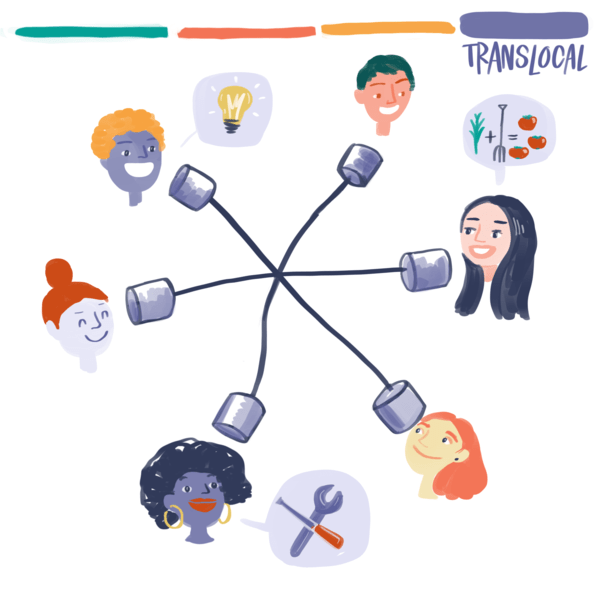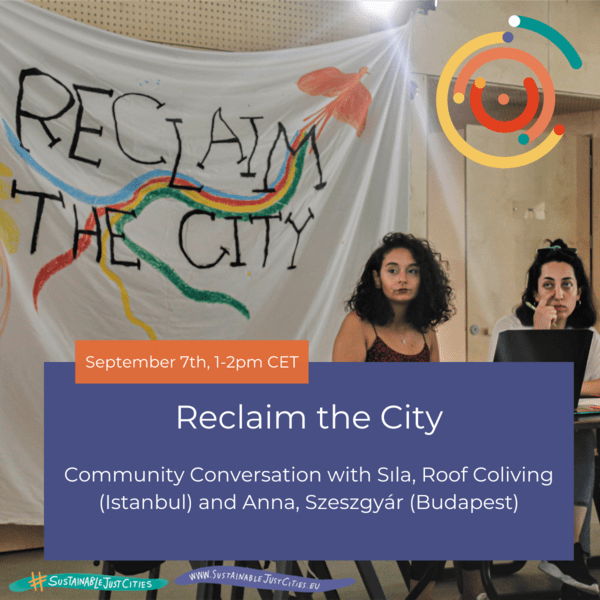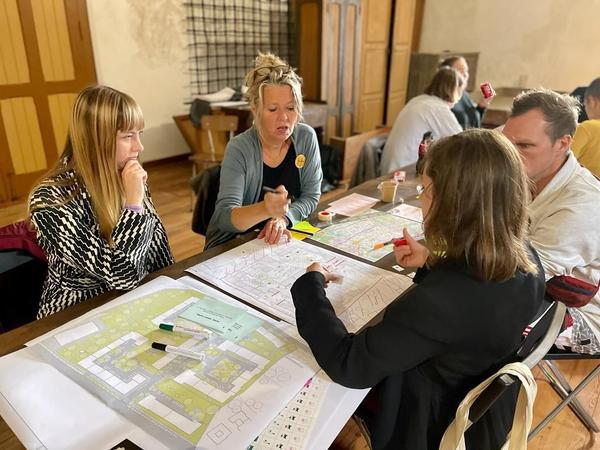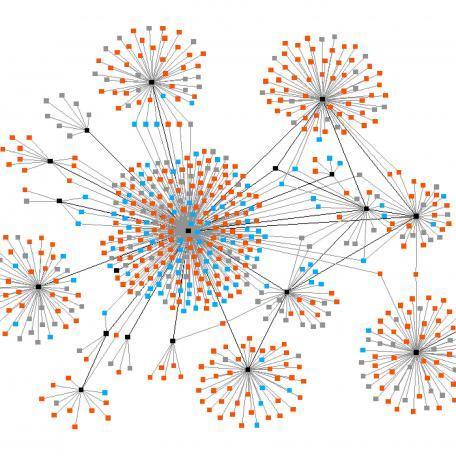
Sharing local learning brings transformative change
#Translocal
The inhabitants of sustainable and just cities learn from and with each other as they experiment with social innovation and path-breaking solutions. Though locally-rooted knowledge is vital, its translation to other locations, contexts (e.g. rural areas) and spatial scales (e.g. national, regional, global) inspires transformative change. This is also referred to as “translocal learning.” Cities are connected through networks, but translocally inspired solutions are neither copy-pasted nor imposed top-down; they are shared and then adapted to specific contexts. City-makers are unafraid to share their mistakes, so that all can learn from them.
Inspirational example
Cities learning from each other, translocally
The Municipality in Transition network offers a concrete example of how cities in different countries are learning about the concept of a just transition from each other.
Municipalities in Transition was created to support citizens’ groups that want to collaborate with their local governments and to support local governments that have a difficult time building relationships with their citizens. Municipality in Transition provides a framework of change to do so. Learning happens at the local level between different actors, as well as between the municipalities involved in the network. For instance, the Italian municipalities of Valsamoggia and Santorso regularly exchange about their experiences, programs and resources – and so learn from each other. Other examples are transition towns, municipalities in transition, and even the UrbanA Community of Practice, which is behind the keys to unlock Sustainable and Just Cities.

Avenues for action
You might be wondering, what everyday actions can I take to put all this theory into practice? Take a look at the avenues for action, below, for some practical guidance.



